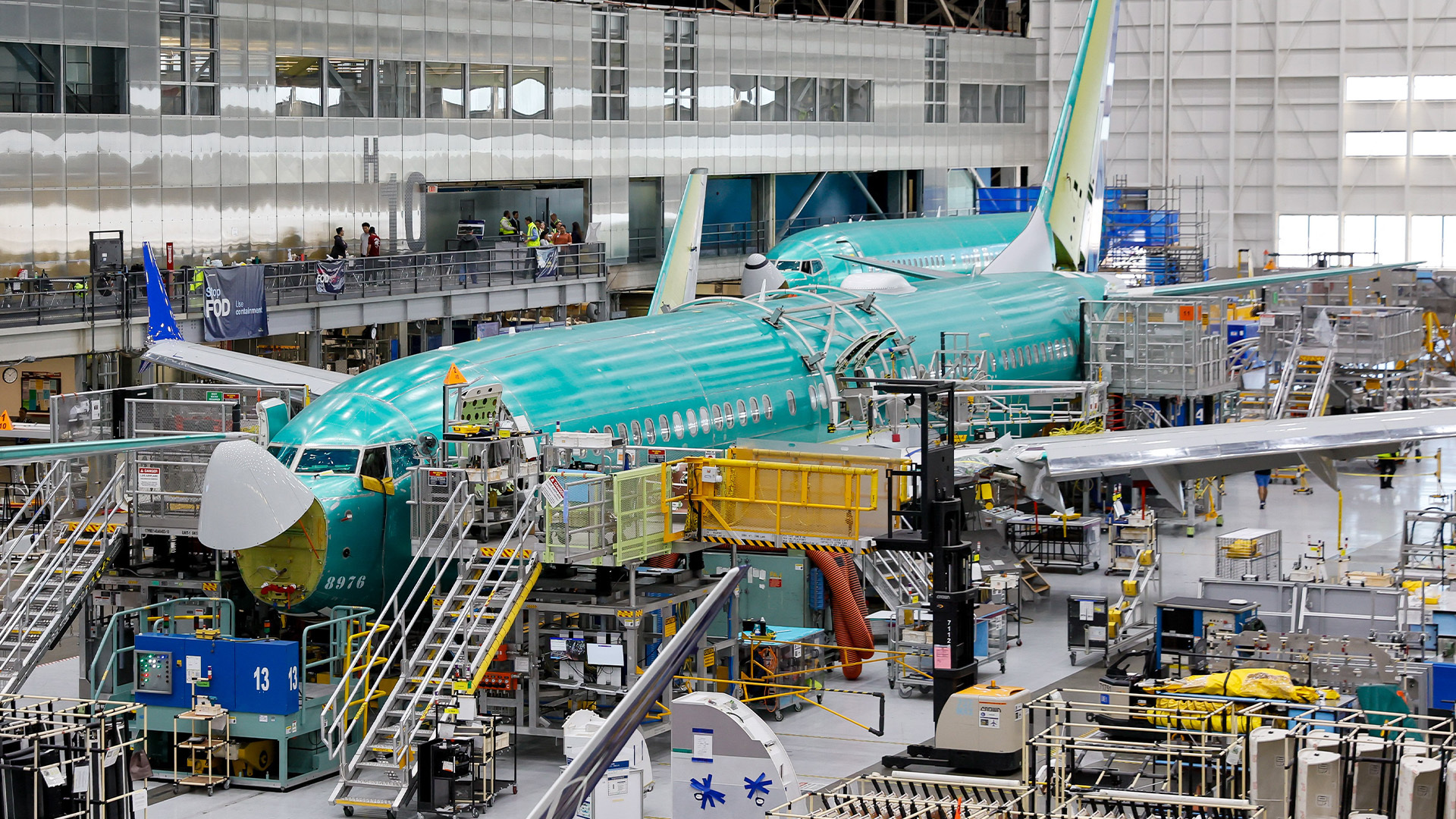
Simone Del Rosario: Boeing is bleeding cash and looking for a way to plug the wound. Will $10 billion do the trick?
According to a Bloomberg report out Tuesday, the troubled company is considering raising $10 billion by selling new stock. It’s not a done deal and sources say it likely wouldn’t happen until after the strike is resolved if it happens at all.
It’s expected that Boeing will have already burned through more than that amount of cash through the third quarter of this year.
Richard Aboulafia: They are way behind in aircraft deliveries and losing market share fast to Airbus, and a lot of their customers are deeply aggrieved, understandably by this. And of course, there are doubts about their core product line in terms of, shall we say, the reliability of the manufacturing process. So to have a strike come on top of all of this is not good.
Simone Del Rosario: The machinist strike is into its third week after the union refused to vote on what was supposedly Boeing’s “best and final” offer last week.
More than 30,000 machinists walked off the job in September. It’s the company’s first work stoppage since 2008.
The strike is preventing production of the best-selling 737 MAX and other jets at a time when the company is already struggling to meet deliveries.
Boeing put in hiring freezes, furloughs, leadership pay cuts and more to plug the hole, but still the first two weeks of the strike cost the company, workers and shareholders $1.4 billion, according to Anderson Economic Group.
AEG CEO Patrick Anderson said: “The company’s large backlog of orders, and the fact that it is losing both current production and future parts and service business, mean that Boeing shareholders are effectively incurring losses every day this strike continues. Boeing workers on strike are also losing, and as the strike goes on, more of Boeing’s suppliers will be forced to cut wages and hours.”
Boeing’s stock is down about 40% in 2024. It’s putting Boeing on track for its worst annual performance since the financial crisis of 2008.
While a new stock sale would dilute current shareholders, analysts say it could help the company keep its investment-grade rating.
Moody’s put Boeing’s ratings on review for downgrade following the strike, while Fitch Ratings said, “An extended strike could have a meaningful operational and financial impact, increasing the risk of a downgrade.”
Striking union president Jon Holden told Seattle’s KUOW they don’t have any scheduled talks with Boeing this week. The last offer they’ve received is the one they rejected last week. Holden says 80% of members say it didn’t meet their needs, while Boeing says they’re prepared to meet at any time.
Jon Holden: Our membership is tired of the decisions being impacted negatively by the decisions of upper leadership who have forgotten, you know what the production system is all about and how it works, and you know that the foundation of our production system is the most important thing. Now, this company needs to be profitable, and they need to ensure that their their stocks are successful, but they also have to take care of the workers that build that profit.
Simone Del Rosario: The strike is far from the only dark cloud hanging over Boeing. Safety issues continue to come up, with the NTSB issuing an urgent safety recommendation Friday, warning the rudder control component on some 737 models could get jammed in cold weather. Then, Tuesday, the NTSB scolded the FAA in a letter, accusing it of not taking its warnings seriously.









